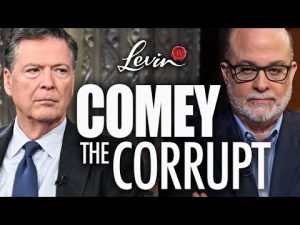In the hazy world of Hollywood and high-brow cinema, Chuckles the Clown found his latest gig: pondering whether movies are carrying more leftist messages than a Huffington Post article at a San Francisco tea party. The scene unfolds with a fresh movie by Paul Thomas Anderson, the darling director known for both his cinematic flair and a suspicious penchant for highlighting communism in a light more flattering than a soft-focus Instagram filter. This new flick, a saga of revolutionary antics with a price tag close enough to a small nation’s GDP, has left critics swooning for its supposedly deep commentary on America’s woes.
Now, here’s the punchline: the cinema is but a canvas for the imaginings of storytellers, yet some folks out there have begun to confuse these tales with reality. It seems, like flipping through the pages of a fantastical comic book, the eager left believes that tweaking cultural narratives can morph reality itself. No need for legislative processes, discussions, or pesky democracy—just a swift rewrite of the script will do!
This film in particular, laden with big names like Leonardo DiCaprio and Sean Penn, posits revolutionaries as the unlikely heroes. Yes, these same revolutionaries are often depicted like rock stars from the 60s, throwing peace signs while casually tossing around societal grenades. But here’s the trick: it seductively wraps its message in charisma, calling civil disobedience and violence a necessary means to disrupt an “oppressive” America, all while sipping soy lattes and retweeting their outrage.
The critics join this exaggeration of reality, offering reviews that blend admiration with a wink towards a darker acceptance of upheaval. They speak of shining lights on unspoken truths while simultaneously standing in shadowy corners spinning tales of societal doom. One wonders, do these reviewers pause for a reality check, or do they simply enjoy peering through their rose-tinted spectacles?
Amidst this cultural tempest, the right balks in alarm at the narrative’s ability to influence young minds, whispering tales of injustice and rebellion into eager ears. What a scene it sets—a generation fed on stories where change requires chaos, not conversation. And yet, even as the credits roll and the popcorn kernels settle, there’s a realization: the battle is not fought in theaters alone. Politics and culture dance in a chaotic waltz. Until the right learns the steps, it might always be leading from behind.







